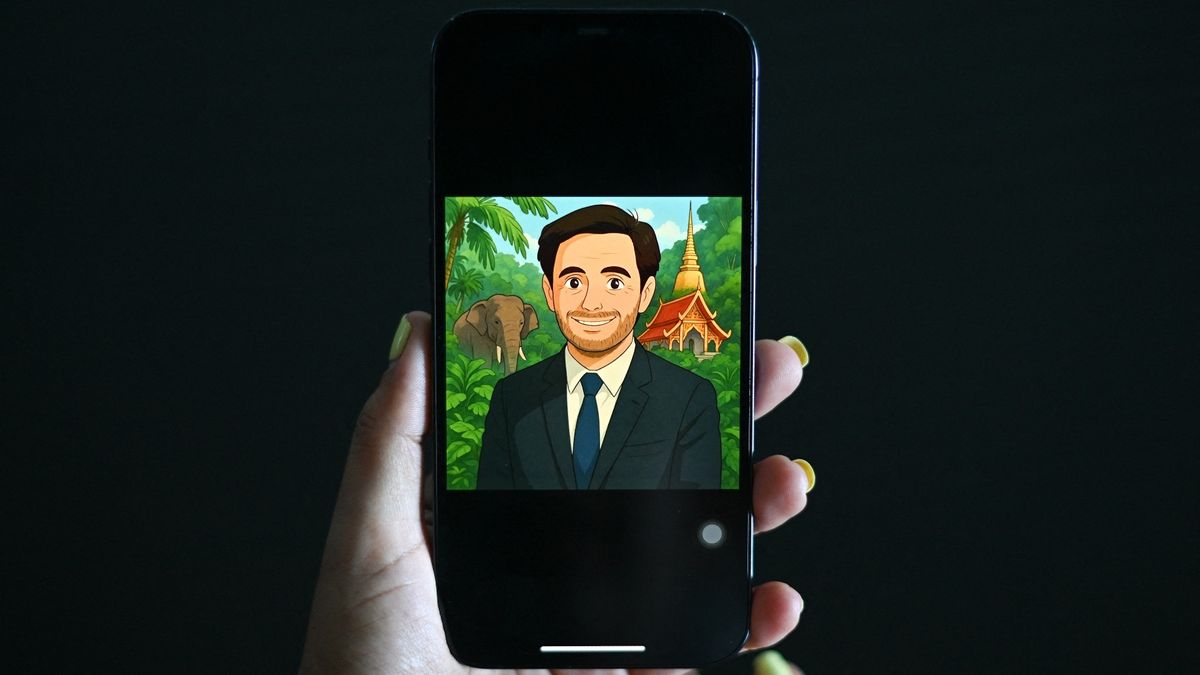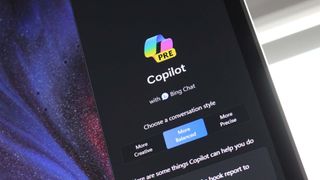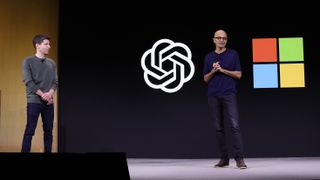Despite Microsoft's multi-billion-dollar OpenAI investment, these viral ChatGPT 4o Ghibli memes are another example of just how far behind Copilot is
In my opinion, OpenAI has sidelined Microsoft again, restricting the Ghibli meme frenzy exclusively to its users.

I've been on board the generative AI train since OpenAI's early days, leading up to ChatGPT's launch, and eventually Microsoft investing billions of dollars in OpenAI.
On paper, Microsoft is supposedly to be among the major tech companies in the AI space, owing to its multi-billion investment and close ties with OpenAI as its largest investor and exclusive cloud provider (well, at least until SoftBank photo-bombed the the best tech "bromance" in history with its ambitious $500 billion Stargate project).
Over the past year, a rift has seemingly formed between Microsoft and OpenAI, and its genesis can be traced back to Sam Altman's sudden ouster as OpenAI CEO by the board of directors in 2023.
Microsoft CEO Satya Nadella admits that OpenAI had a 2-year runway to develop ChatGPT uncontested. It's evident that the executive identified this competitive advantage and hoped that he'd leverage it to leap forward in the AI space ahead of its competitors like Google and Meta.
However, this hasn't been the case. At best, Microsoft's multi-billion-dollar investment in OpenAI has only left it with the short end of the stick. OpenAI even shipped ChatGPT's desktop app to Apple's macOS first, snubbing Windows 11 despite Microsoft's $10 billion investment. “We’re just prioritizing where our users are,” added OpenAI.
Is OpenAI exclusively preserving the Ghibli effect for ChatGPT, leaving Microsoft Copilot in the cold?

When you look at most of Microsoft's AI developments, OpenAI is almost always at the center of it all. A former high-profile executive at the company claimed that Microsoft's obsession with AI has led to the premature death of products like Azure Cognitive Search, Azure AI Bot Service, and Kinect DK.
But can the payoff even be seen? Microsoft is seemingly last in line to access OpenAI's flagship AI models despite its investments, and the same can be said about ChatGPT-4o's new image generator model.
Get the Windows Central Newsletter
All the latest news, reviews, and guides for Windows and Xbox diehards.
While OpenAI revels in the success of its new image generator tool following the Ghibli memes craze on social media, Microsoft Copilot seems stuck in the past, haunted by the ghost of OpenAI's "lobotomized" DALL-E 3 image generation technology.
To put everything into perspective, OpenAI CEO Sam Altman shared impressive stats about ChatGPT's rapid userbase growth, subtly gloating that the platform had gained one million new users in just one hour. He attributed the impressive feat to ChatGPT-4o's launch.
It's no secret that Microsoft has struggled to establish user interest in its Copilot AI. In a separate report, Microsoft insiders revealed that the top complaint about Copilot was that it wasn't as good as ChatGPT.
However, the company quickly dismissed the claims, indicating that ChatGPT isn't better than Copilot; you're just not using it as intended. The company admitted that a lack of proper prompt engineering skills contributed to the degraded user experience for some users, prompting it to launch Copilot Academy to sharpen skills.
Microsoft's latest upgrade for Copilot isn't helping the company grow the platform's user base. Users have shared their frustrations on social media about the update, indicating that it is a step backward, with some indicating that they are switching to ChatGPT until Microsoft backtracks.
Ghibli memes will come to Copilot but OpenAI would have already won the race

It only makes sense that OpenAI's ChatGPT-4o image generator tool will make its way to Microsoft Copilot. Besides, it already shipped to ChatGPT free users despite reports that there was a GPU shortage, limiting its accessibility to Premium subscribers.
But just like physics dictates, what goes up must come down. I anticipate the same theory will apply to the hype building around Ghibli memes and ChatGPT's new image generator tool.
While the tool is seemingly unrestricted and unhinged, giving users the freedom to bring their wildest imaginations to life, this utopia might be short-lived.
Artists and key players in the industry have already started sounding alarms about the tool's unrestricted nature, flagging instances where the tool has been used to cause harm or paint a situation in a bad light.
Likewise, copyright infringement-related issues continue to be a pain in the neck for the ChatGPT maker. As such, this could attract the attention of anti-trust watchdogs, leading to regulation and ultimately heavy censorship that will restrict the tool's capabilities.
However, market analysts predict that Microsoft is strategically positioned with OpenAI to be a clear winner in the AI race, especially with the Ghibli memes wave. According to a spot by Business Insider, analysts claim, "We would glean that surging ChatGPT user growth likely indicates surging ChatGPT+ growth, i.e. revenue growth for OpenAI."
While it is unclear when the Ghibli effect will knock on Copilot's door, analysts predict that OpenAI's recent upward trajectory in ChatGPT growth might be a good thing for Microsoft "because it boosts OpenAI's growth, computing needs, and valuation."
History is repeating itself in a little over a year

Aside from a revenue-sharing agreement, Microsoft's partnership with OpenAI is supposed to grant the tech giant exclusive rights to its technology. On the other hand, OpenAI gets access to Microsoft's Azure cloud infrastructure for training and developing AI models. Additionally, it gets funding from Microsoft to support its efforts in the AI space.
Microsoft has seemingly held up its end of the deal until recently, when OpenAI unveiled its $500 billion Stargate project designed to facilitate the construction of data centers across the United States to bolster its advances.
In the process, Microsoft lost its exclusive cloud provider and largest investor status to SoftBank. However, recent reports from OpenAI's latest funding round that pushed its market cap to $300 billion suggested that SoftBank is quickly burning through its resources and even plunging itself into debt to satisfy OpenAI's AGI thirst.
However, both parties have quietly voiced their dissatisfaction with their multi-billion dollar partnership. On one hand, Microsoft claims OpenAI's GPT-4 model is "too slow and expensive" to meet Copilot 365 users' needs.
On the other hand, OpenAI voiced its concerns and frustrations about Microsoft not meeting its cloud computing needs. The ChatGPT maker reportedly indicated that it would be Microsoft's fault if another AI lab achieves the AGI benchmark first.
To that end, Microsoft's partnership with OpenAI seems to be fraying as recent reports suggest that the former is developing in-house models and testing third-party ones for Copilot, emancipating itself from an overreliance on the ChatGPT maker.

Kevin Okemwa is a seasoned tech journalist based in Nairobi, Kenya with lots of experience covering the latest trends and developments in the industry at Windows Central. With a passion for innovation and a keen eye for detail, he has written for leading publications such as OnMSFT, MakeUseOf, and Windows Report, providing insightful analysis and breaking news on everything revolving around the Microsoft ecosystem. While AFK and not busy following the ever-emerging trends in tech, you can find him exploring the world or listening to music.
You must confirm your public display name before commenting
Please logout and then login again, you will then be prompted to enter your display name.